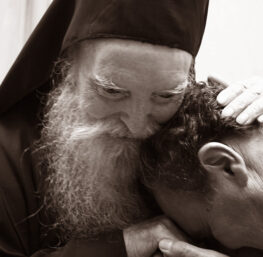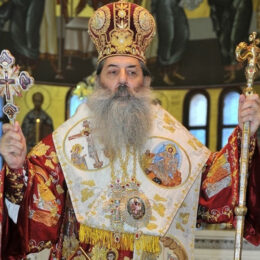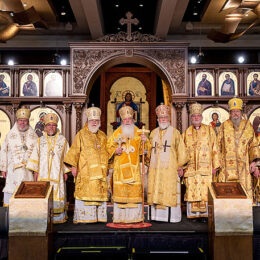American Thinker | Paul Kengor | Apr. 11, 2008
The spiritual mentors of Ronald Reagan shaped his understanding and vision of America’s role in the world. Why would anyone assume the same does not hold true for Barack Obama?
“I’ve spoken of the shining city all my political life…. [I]n my mind it was a tall, proud city built on rocks stronger than oceans, wind-swept, God-blessed….”
– President Ronald Reagan, Farewell Address, January 11, 1989
“‘God Bless America?’ No, no, no, God d— America…. God d— America…. God d— America!!”
– Jeremiah Wright, pastor to Barack Obama for two decades
Americans have always been a religious people, with the vast majority believing in God and a consistent majority attending religious services — from the founding to today. The so-called worldview and even politics of many Americans are frequently shaped, guided, or reinforced by what they hear week after week from behind the pulpit, from the person of God they respect and usually admire as their pastor. A pastor leads the flock. A good pastor reads and applies Scripture to the times — to the events of the day. Pastors hold an immense responsibility, as they can very well mold a citizen, leader, and even that rarest of congregants who have the extraordinary potential to become president of the United States.
Academics who study religion and politics talk about “civil religion.” Jean Jacques Rousseau maintained that no state had ever been founded without a religious basis, nor could it survive without appealing to its citizens through some form of religion, or, as he put it, through some form of “civil religion.” Citizens need a transcendent cause, something larger in which to believe. For most typical states, civil religion is understood as an infusion of sacred principles drawn from a nation’s own civil traditions and from those of a conventional, organized religion — a kind of mixture of political allegiance and religious sentiment.
America itself is a good illustration of this. In American history, civil religion has been associated with positives images — America as a promised land and new Jerusalem, Americans as a chosen people, to name just two. In fact, many left-leaning academics do not like how this fusing of the political and the religious has led, in their view, to excessive patriotism, in which America is seen as possessing a dangerous notion of divine mandate that can err on the side of self-righteousness and imperialism. And of course, that’s a balance that any American leader needs to be careful to keep in mind.
Nonetheless, overall, this sort of civil religion perceives America positively.
To the contrary, there is another admixture of faith and politics that strays in the other direction — a kind of un-civil religion, I suppose. This brand draws from America’s worst sins, real and imagined, and employs them to construct a terrible America, one that has been a force for hell and havoc in this world — so bad that it deserves the worst calamities that befall it, like everyday business people being ignited into flames and violently dislodged from atop the World Trade Center buildings on September 11, 2001. Rather than an image of America whose first leader knelt in the snow of Valley Forge to seek the counsel of Divine Providence, here’s an America whose men in charge border the demonic, heading to the lab to manufacture everything from crack cocaine to the AIDS virus so they can kill black Americans.
This view of America is the one, of course, perpetuated by the Rev. Jeremiah Wright, pastor to Senator Barack Obama (D-IL), the frontrunner for the Democratic presidential nomination and quite possibly the next president of the United States. It is a toxic brew that we can only hope and pray has not sunk deep into the marrow of the bones of Senator Obama. That hateful view of an insidious, malevolent America might be contrasted with the kind of America that President Ronald Reagan — regularly ranked as one of our most beloved presidents — learned about from the pulpit.
[…]
The message Reagan took from Matthew 5:14-16 (New Testament) is especially telling. The passage reads:
You are the light of the world. A city on a hill cannot be hidden. Neither do people light a lamp and put it under a bowl. Instead they put it on its stand, and it gives light to everyone in the house. In the same way, let your light shine before men….
A nation that reflects God is not a nation to be hidden under a bowl, Reagan held, just as one would not light a lamp and then cover it with a bowl, not shining its light and extinguishing itself in the process. There’s no point to lighting a lamp merely to cover it. Likewise, there’s no point to a nation that’s a beacon hiding itself. The faithful are not to harness the light only for themselves and their own warmth, but to share and spread it. One must bring that light to where it is needed — to cast it upon the darkness. For Reagan, that would mean (especially) upon the Soviet Union – an empire he called “evil,” and a land he dubbed “the heart of darkness.”
. . . more



